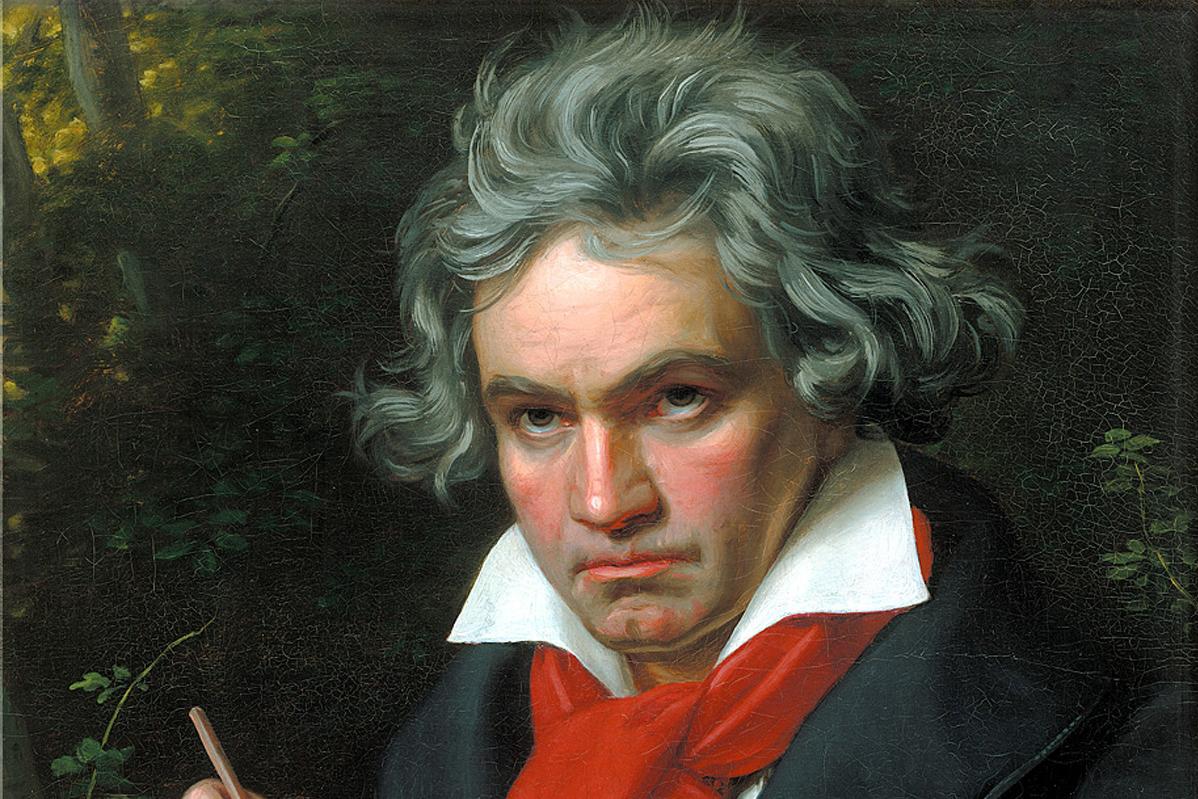“250 years of Ludwig van Beethoven" should have been celebrated in December 2020. It was the 250th anniversary of his birth. But due to the pandemic, many events were cancelled or moved online, concerts postponed. Numerous myths still surround the life of Ludwig van Beethoven. Despite many biographies, it remains a great mystery.
The exact date of Beethoven’s birth is not known; he was baptised on 17 December 1770 in Bonn. He came from a family of musicians; his father recognised his son’s talent early on and wanted to make a prodigy out of him, following Mozart’s example. Ludwig learned the piano, organ, violin, later the harpsichord and viola, and composition at the age of 12. His father was strict and sometimes violent. Ludwig practised incessantly and was an outstanding musician from a very early age.
FRENCH REVOLUTION
When Beethoven was a young adult, the liberal Elector Maximilian Franz ruled in Bonn – the year of the French Revolution in 1789 – and many people were touched by the ideas of the revolution in France. Beethoven, too, was fascinated by the ideals of liberty, equality, and fraternity. Nevertheless, outside the nobility there were no decisive patrons of the arts, nor did they have the premises to host concerts in the form of the great palaces. From 1791, Count Waldstein financed Beethoven’s livelihood.
VIENNA
When Beethoven moved to Vienna in 1792, he found himself in a restorative political climate. The Viennese nobility was afraid of the developments sparked by the revolution in France, especially as an aunt of the Austrian emperor had been executed there. In Vienna, too, Beethoven was initially dependent on noble patrons. However, the brilliant musician quickly became well-known in Viennese society and was able to make a living from his art as a free entrepreneur. Together with Haydn and Mozart, he soon belonged to the big three of Viennese Classicism. But he did not only make friends with his moodiness and outbursts of anger. And his manners did not fit into aristocratic circles either.
DEAFNESS IN HIS EARLY THIRTIES
In his early thirties, his hearing deteriorated until he was almost completely deaf. He was afraid that others might notice and saw deafness as the end of his career as a musician. In a testament, he announced his suicide. But then he found new courage during walks in nature. He composed again. Everything now took place within him. Beethoven had a perfect pitch. Virtuoso compositions emerged, regardless of whether they were playable or not.
BEETHOVEN AND WOMEN
The cause of Beethoven’s hearing disorder has not been clearly explained to this day. His relationship with women also remains mysterious. Beethoven was never married, but he was often in love, especially with aristocratic women. Nevertheless, these were “impossible” connections; the differences in class did not permit relationships of this kind.
COMPOSING DESPITE DEAFNESS
In the last ten years of his life, Beethoven could only continue conversations in writing. He became squalid, lonely and drank. Visitors were horrified by the chaos in his apartment. Nevertheless, during the time of his complete deafness, he composed some of his most important works, including the “Missa Solemnis” and the “Ninth Symphony”. And in doing so, he achieved something almost unbelievable, as the writer Thomas von Steinaecker expresses, Beethoven “turned the tragedy of his life into a triumph.”
Today, Ludwig van Beethoven is one of the world’s most performed composers. The “Ninth Symphony”, a setting of Schiller’s “Ode to Joy”, became the anthem of the European Union in 1985.
Text Marie Wildermann

